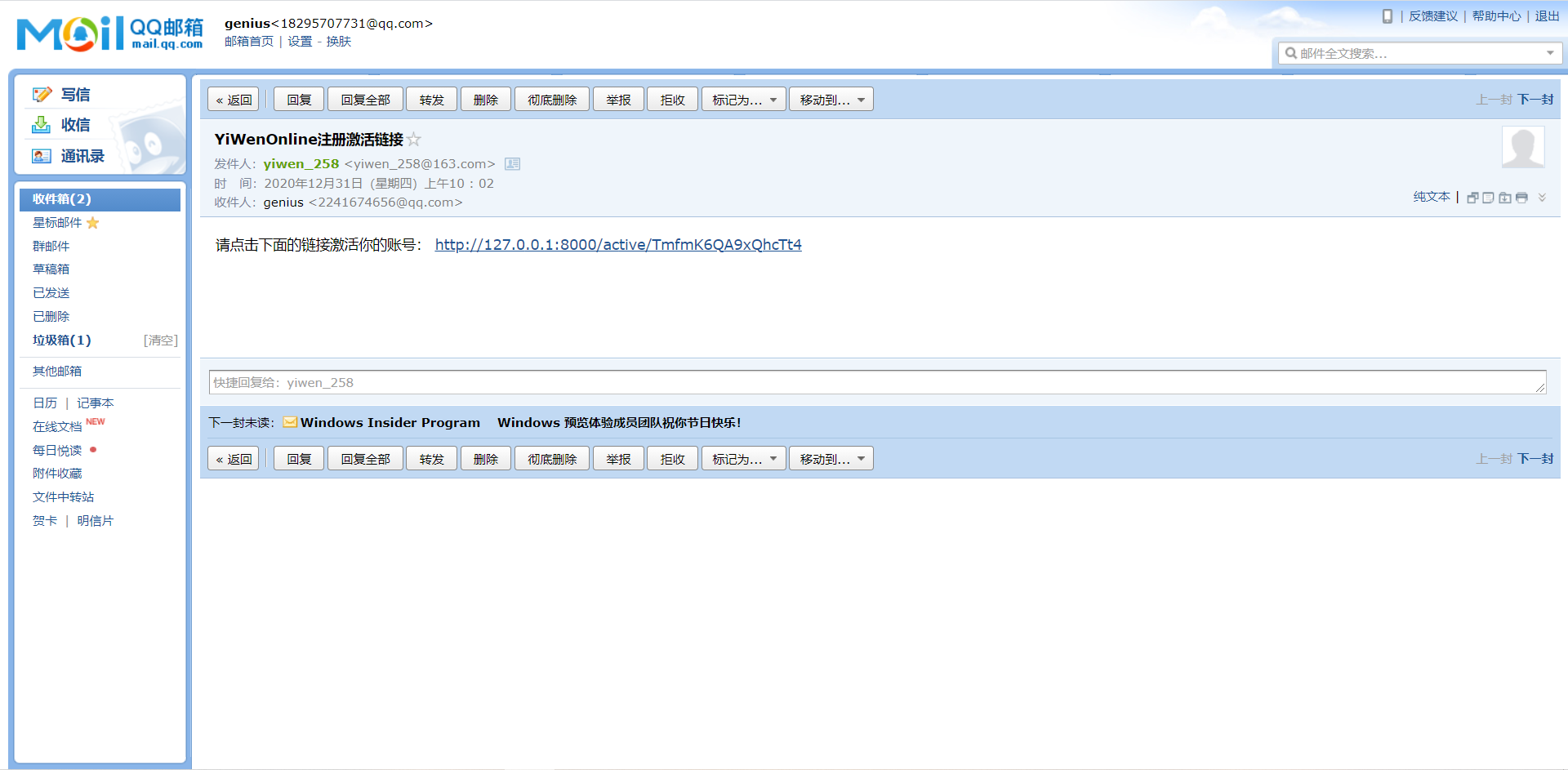使用django内置邮件模块发送邮件
Django内置的邮件模块为 django.core.mail.send_mail
在settings.py中配置邮箱设置
EMAIL_HOST = "smtp.163.com" # 邮箱服务器
EMAIL_PORT = 25 # 端口
EMAIL_HOST_USER = '' # 用户名
EMAIL_HOST_PASSWORD = '' # 邮箱服务商给生成的SMTP令牌
EMAIL_FORM = '' # 收件人看到的发件人
send_mail源码
def send_mail(subject, message, from_email, recipient_list,
fail_silently=False, auth_user=None, auth_password=None,
connection=None, html_message=None):
"""
Easy wrapper for sending a single message to a recipient list. All members
of the recipient list will see the other recipients in the 'To' field.
If auth_user is None, use the EMAIL_HOST_USER setting.
If auth_password is None, use the EMAIL_HOST_PASSWORD setting.
Note: The API for this method is frozen. New code wanting to extend the
functionality should use the EmailMessage class directly.
"""
connection = connection or get_connection(
username=auth_user,
password=auth_password,
fail_silently=fail_silently,
)
mail = EmailMultiAlternatives(subject, message, from_email, recipient_list, connection=connection)
if html_message:
mail.attach_alternative(html_message, 'text/html')
return mail.send()
send_mail必需参数
| 参数 | 功能 | 备注 |
|---|---|---|
| subject | 邮件标题 | 字符串 |
| message | 邮件正文 | 字符串 |
| from_email | 邮件发送人 | 字符串 |
| recipient_list | 邮件接受者 | 必须是一个列表 |
示例代码
utils/email_send.py
from random import Random
from django.core.mail import send_mail
from users.models import EmailVerifyRecord
from YiwenOnline.settings import EMAIL_FORM
# 生成随机字符串
def random_str(random_length=8):
str = ''
# 生成字符串的可选字符串
chars = 'AaBbCcDdEeFfGgHhIiJjKkLlMmNnOoPpQqRrSsTtUuVvWwXxYyZz0123456789'
length = len(chars) - 1
random = Random()
for i in range(random_length):
str += chars[random.randint(0, length)]
return str
# 发送注册邮件
def send_register_email(email, send_type="register"):
# 发送之前先保存在数据库,到时候查询链接是否存在
code = random_str(16)
email_record = EmailVerifyRecord(code=code, email=email, send_type=send_type)
email_record.save()
# 定义邮件内容
email_title = ''
email_body = ''
if send_type == 'register':
email_title = 'YiWenOnline注册激活链接'
email_body = '请点击下面的链接激活你的账号: http://127.0.0.1:8000/active/{0}'.format(code)
# 使用django内置函数完成邮件发送
send_status = send_mail(email_title, email_body, EMAIL_FORM, [email])
# 发送成功
if send_status:
print('发送成功')
效果


